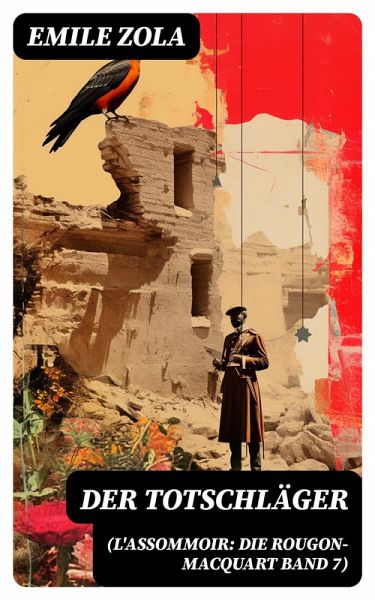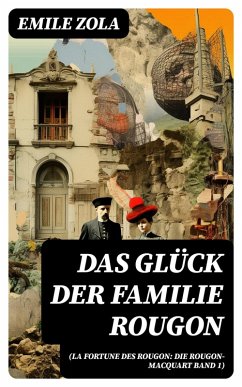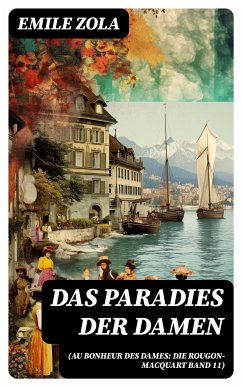
Der Totschläger (L'Assommoir: Die Rougon-Macquart Band 7) (eBook, ePUB)
Versandkostenfrei!
Sofort per Download lieferbar
0,49 €
inkl. MwSt.
Weitere Ausgaben:

PAYBACK Punkte
0 °P sammeln!
In "Der Totschläger", dem siebten Band der Rougon-Macquart-Serie von Emile Zola, wird das trügerische und oft brutale Leben der Pariser Unterschicht eindringlich skizziert. Zola schildert die tragischen Schicksale von Gervaise Macquart und ihren Mitmenschen in einem sozialrealistischen Stil, der den Leser mit seiner Detailverliebtheit und seiner ungeschönten Realität fesselt. Die Auswirkungen von Alkoholismus, Armut und sozialen Missständen werden eindringlich dargestellt und erwecken eine tiefe Empathie für die Charaktere. Der Roman spiegelt die Ambivalenz des menschlichen Lebens wider ...
In "Der Totschläger", dem siebten Band der Rougon-Macquart-Serie von Emile Zola, wird das trügerische und oft brutale Leben der Pariser Unterschicht eindringlich skizziert. Zola schildert die tragischen Schicksale von Gervaise Macquart und ihren Mitmenschen in einem sozialrealistischen Stil, der den Leser mit seiner Detailverliebtheit und seiner ungeschönten Realität fesselt. Die Auswirkungen von Alkoholismus, Armut und sozialen Missständen werden eindringlich dargestellt und erwecken eine tiefe Empathie für die Charaktere. Der Roman spiegelt die Ambivalenz des menschlichen Lebens wider und ist ein beeindruckendes Beispiel für den Naturalismus, der die Werke Zolas prägt. Emile Zola (1840-1902), ein einflussreicher französischer Schriftsteller und Hauptvertreter des Naturalismus, hat sein literarisches Schaffen stark von den sozialen Missständen seiner Zeit beeinflussen lassen. Durch seine eigenen Erfahrungen in einer von Klassenkampf und Ungerechtigkeit geprägten Gesellschaft konnte Zola authentische und erschütternde Einblicke in das Leben der Armen und Ausgegrenzten gewinnen. "Der Totschläger" ist als Teil der detailreichen Rougon-Macquart-Serie ein weiteres Zeugnis seines Engagements für die sozialen Realitäten seiner Zeit und verschafft dem Leser tiefere Einblicke in die menschliche Natur. Die Lektüre von "Der Totschläger" ist für jeden empfehlenswert, der sich für tiefgründige, realistische Erzählungen interessiert und ein Verständnis für die sozialen Probleme des 19. Jahrhunderts entwickeln möchte. Zola überzeugt durch seine ungeschönte Ehrlichkeit und seine Fähigkeit, das menschliche Leiden mit literarischem Geschick darzustellen. Dieser Roman ist nicht nur ein Meisterwerk der französischen Literatur, sondern bleibt auch heute relevant und regt zur Reflexion über gesellschaftliche Strukturen an.
Dieser Download kann aus rechtlichen Gründen nur mit Rechnungsadresse in A, B, BG, CY, CZ, D, DK, EW, E, FIN, F, GR, H, IRL, I, LT, L, LR, M, NL, PL, P, R, S, SLO, SK ausgeliefert werden.














